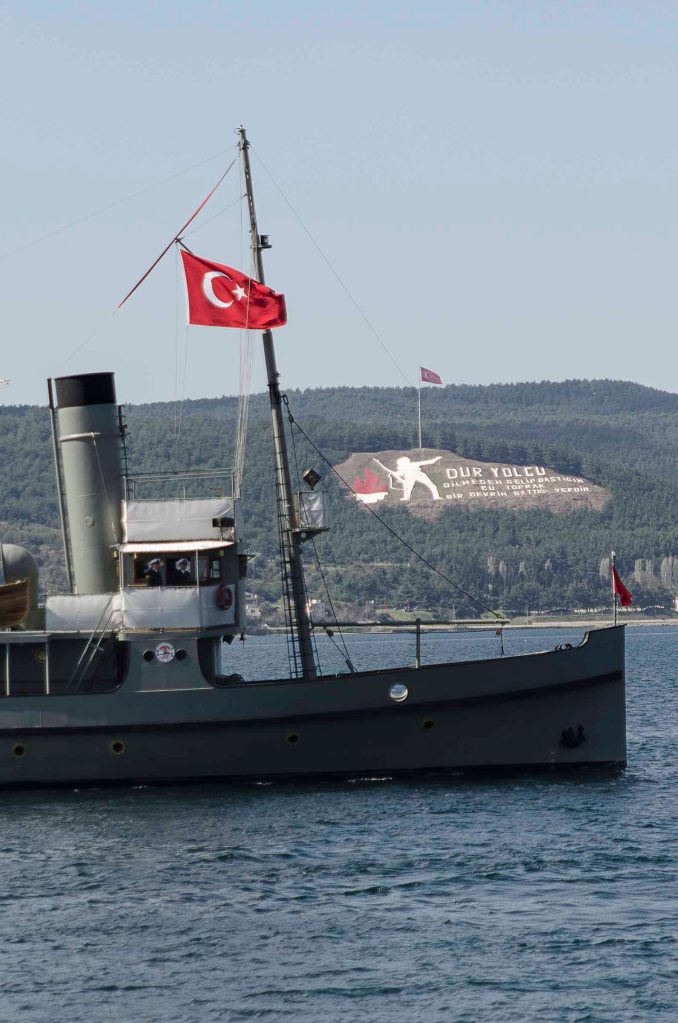
…The small Turkish steamer Nusret succeeded in laying unnoticed a line of 26 mines lying in front of the known minefields of the Straits. This mine line was not laid across the barrier canal, as in minefields, but in length. This line, was constituted, in fact with the last reserve of dormant mines which the Turks had. Their total value probably does not exceed six or seven thousand pounds. In all of Europe in 1915, millions of tin and riveted men to a death fight, large offensives were killed or wounded. The wealth of nations flowed in the abyss. Four or five thousand warships sailed the seas. But these twenty iron pots surreptitiously placed by the steamer Nusrat were intended to give more complete and more decisive results, as to the length of the war and the future of the world than all the other forces combined…
This is how Winston Leonard Spencer-Churchill recalled the event, for the La Revir de Paris in 1930 August.
18 March 1915 must have been an unforgettable day for a ship spotter.
A mighty Allied fleet consisting of HMS Queen Elizabeth, HMS Agamemnon, HMS Lord Nelson, HMS Inflexible, HMS Prince George, HMS Triumph, HMS Ocean, HMS Majestic, HMS Swiftsure, HMS Vengeance, HMS Irresistible, HMS Albion from Royal Navy, Gaulois, Charlemagne, Bouvet, Suffren from French Navy was ready to fight the forts protecting Dardanelles.
The Royal Navy and French warships tried to force their way through the Dardanelles to affect the capture of Istanbul the capital of the Ottoman Empire. It was hoped that this would take Turkey out of the war and enable the Allies to shore up the Russian war effort on the Eastern Front, relieving pressure on the Western Front.
Of the 18 capital ships that sailed in the Dardanelles that morning HMS Ocean, HMS Irresistible and Bouvet never returned. HMS Inflexible and Gaulois had to be beached at the nearby island of Tenedos, for their men to be rescued. Suffren was heavily damaged by Turkish guns and later had to be docked at Malta for intensive repairs.
It was a clear victory of the defenders over the Allied Armada and the start of a bloody campaign that would change history forever.
As it dissipated over the waters the words of a famous Turkish poem that honours the sacrifice of the Gallipoli Campaign and its role in establishing nationhood rang through the minds of many who were there.
One verse, in particular, seems to perfectly express Remembrance and the epic nature of the events experienced by all nations who fought at Gallipoli, but especially the Turkish people:
‘Stop wayfarer! Unbeknownst to you this ground
You come and tread on, is where an epoch lies;
Bend down and lend your ear, for this silent mound
Is the place where the heart of a nation sighs.’
